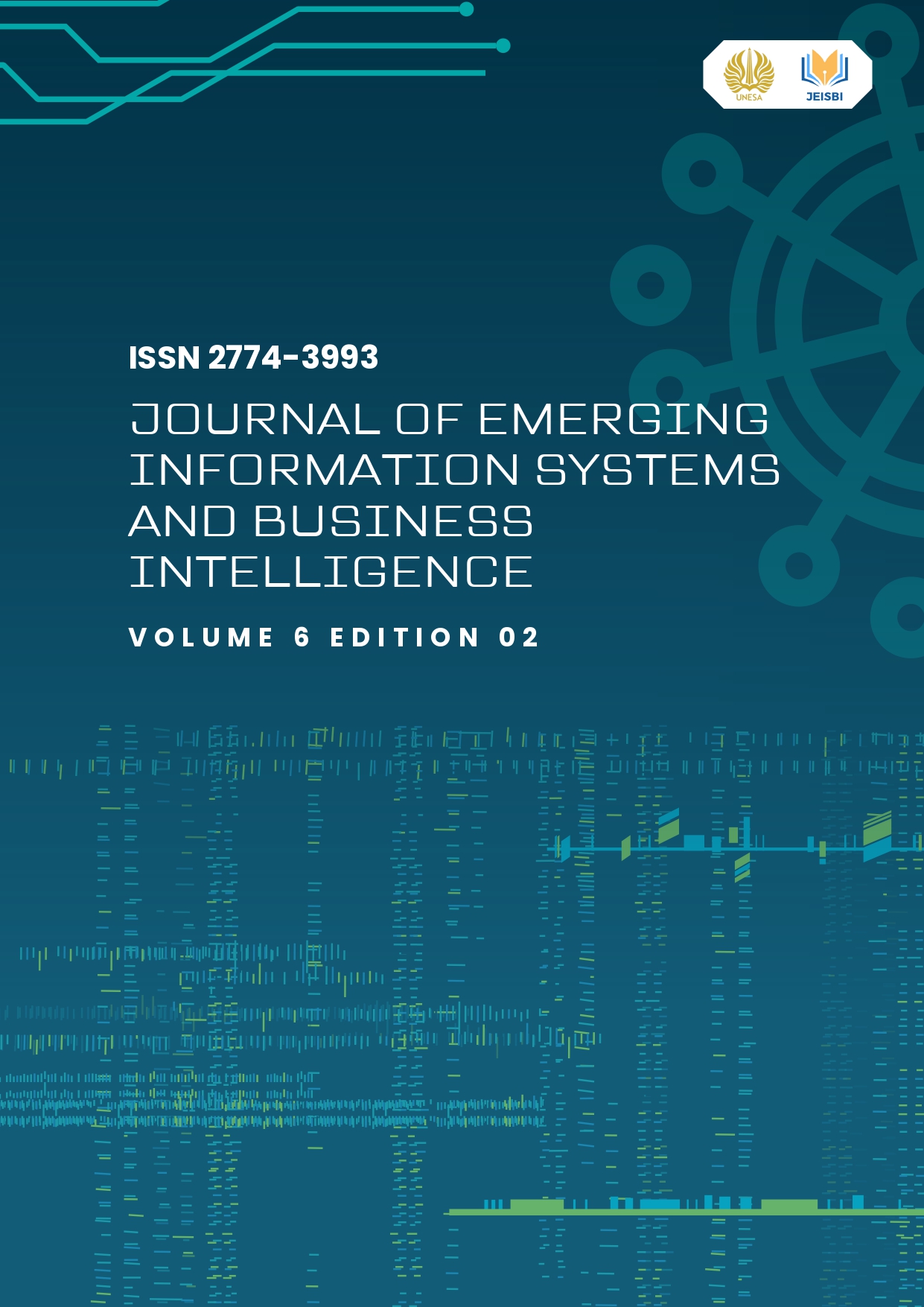Analysis of Interest in ERP Implementation Using the UTAUT Model in East Java MSMEs
DOI:
https://doi.org/10.26740/jeisbi.v6i2.70746Keywords:
MSMEs in East Java, Enterprise Resource Planning (ERP), UTAUT, SmartPLSAbstract
The development of information technology encourages micro, small and medium Enterprises (MSMEs) to implement an Enterprise Resource Planning (ERP) system to improve the efficiency of their business processes. However, the application of ERP among MSMEs is still relatively low, especially in East Java. Enterprise Resource Planning (ERP) is known as enterprise resource planning, which refers to managing various aspects of a company's business in an integrated manner. This study aims to determine the factors that influence interest in the use and behavior of using the ERP (Enterprise Resource Planning) system with the Unified Theory Of Acceptance And Use Of Technology (UTAUT) model. The UTAUT model has four independent variables, namely performance expectations, effort expectations, social influence, and facilitating conditions. The UTAUT model has two dependent variables, namely user interest and technology use behavior. In addition, this study adds one other variable, namely software security. In this study, a sample of 100 MSMEs was used. Data was obtained by distributing questionnaires and meeting with MSME owners in East Java. The data was then analyzed using SmartPLS 4.0 software. The test results indicate that the variables of performance expectations and facilitating conditions have a positive and significant effect on interest in using the ERP (Enterprise Resource Planning) system. Then, the hypotheses that were rejected, namely effort expectations, social influence, user interest and technology usage behavior.
Downloads
Downloads
Published
How to Cite
Issue
Section
 Abstract views: 79
,
Abstract views: 79
, PDF Downloads: 100
PDF Downloads: 100


